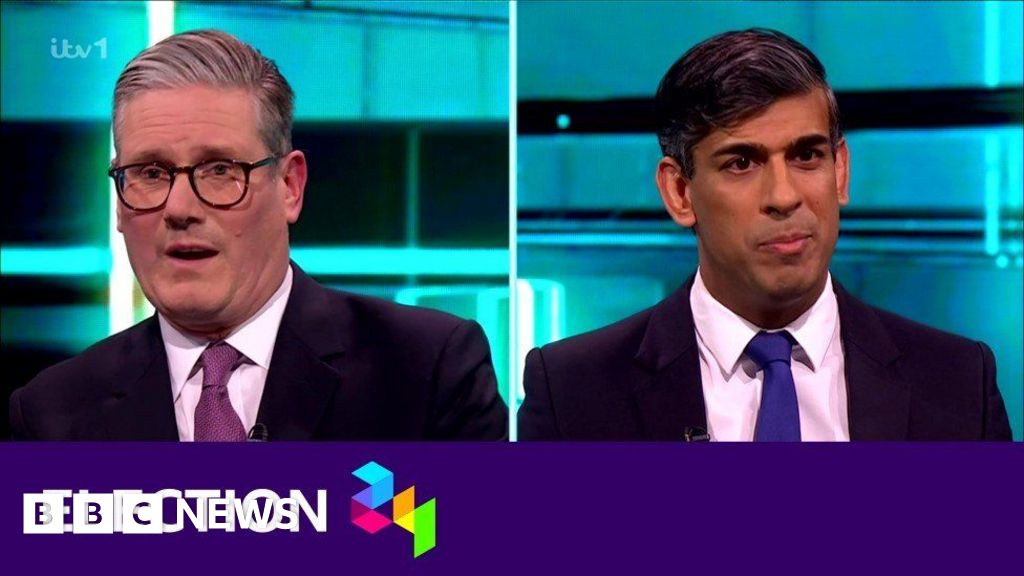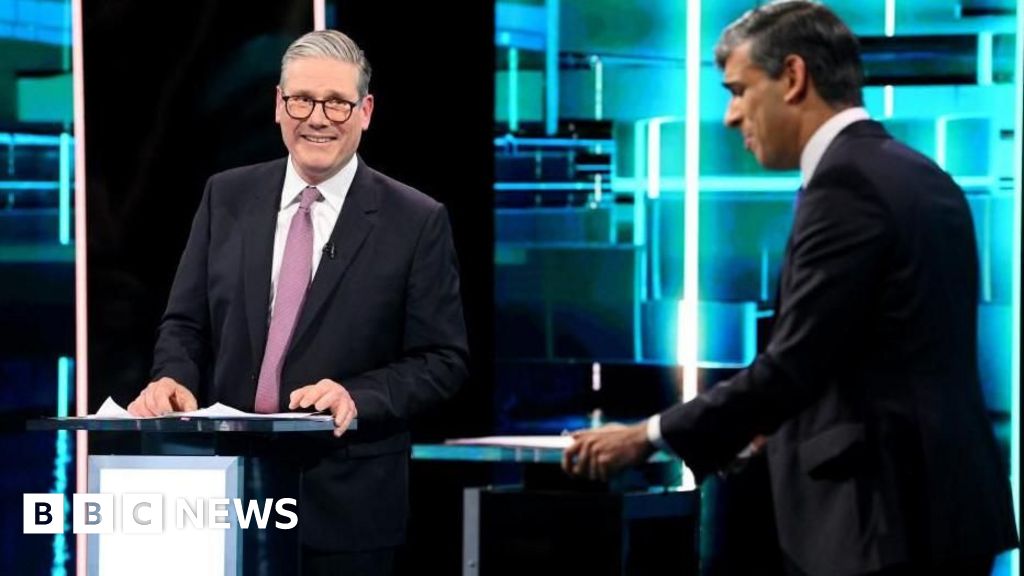
In the first televised debate of the 2024 general election, Rishi Sunak and Keir Starmer clashed over various issues including taxes, immigration, and healthcare. The debate took place on ITV and was moderated by Julie Etchingham. During the exchange, Sunak accused Starmer of planning to raise taxes by £2,000 per year for every working household if elected. However, Starmer denied this claim and called it 'absolute garbage.'
Sunak also suggested that he might pull the UK out of the European Convention on Human Rights if Rwanda policy doesn't work. The Labour leader brought up Liz Truss's premiership to criticize Sunak and the Tory record in government.
The debate saw heated exchanges between the two leaders, with both using personal stories to connect with voters. For many analysts, Sunak needed a big performance after a rocky year in office and a series of scandals within his party. The ITV event was the first of two scheduled televised contests between Sunak and Starmer.
The cost of living issue was also discussed during the debate, with both leaders addressing energy bills, food bills, private healthcare, and taxes. Sunak challenged Starmer for answers over his policies on these matters. The Labour leader pivoted to talking about the Conservatives' 14-year record in office and called for a change.
The debate poll results showed that Sunak was seen as a narrow victor, although Starmer was perceived as more likable and trustworthy. While the debate is unlikely to swing significant numbers of votes, Sunak's performance may have steadied some nerves inside his anxious party.


